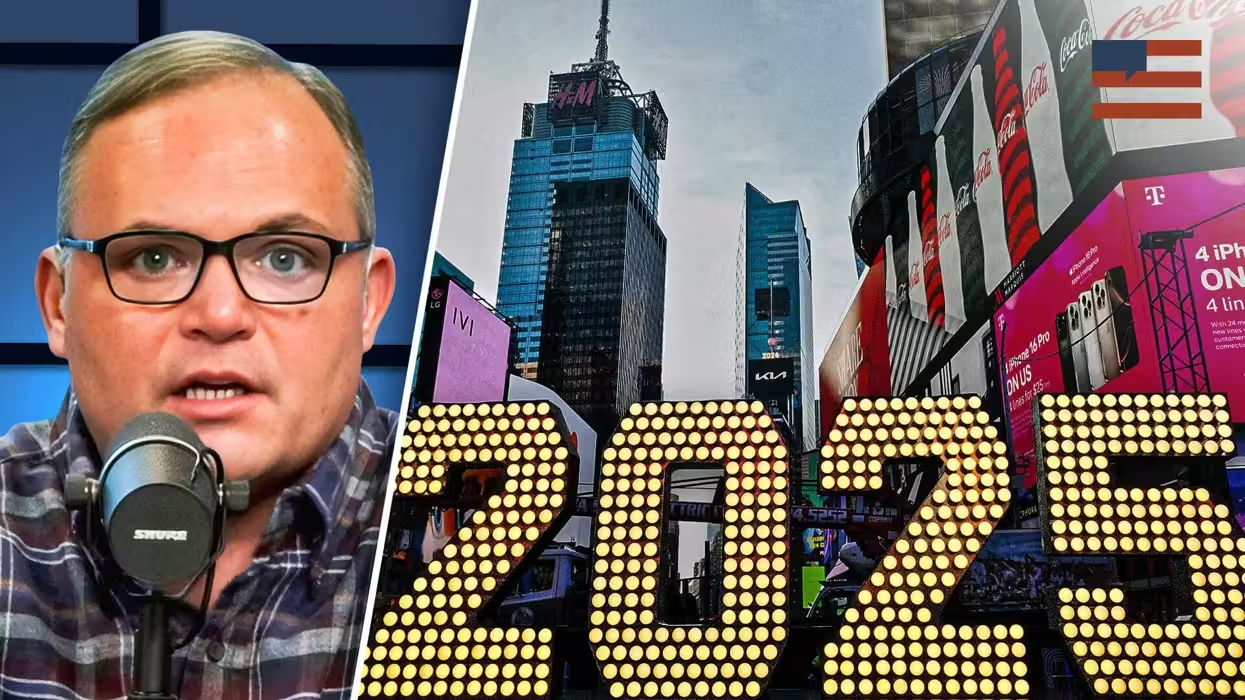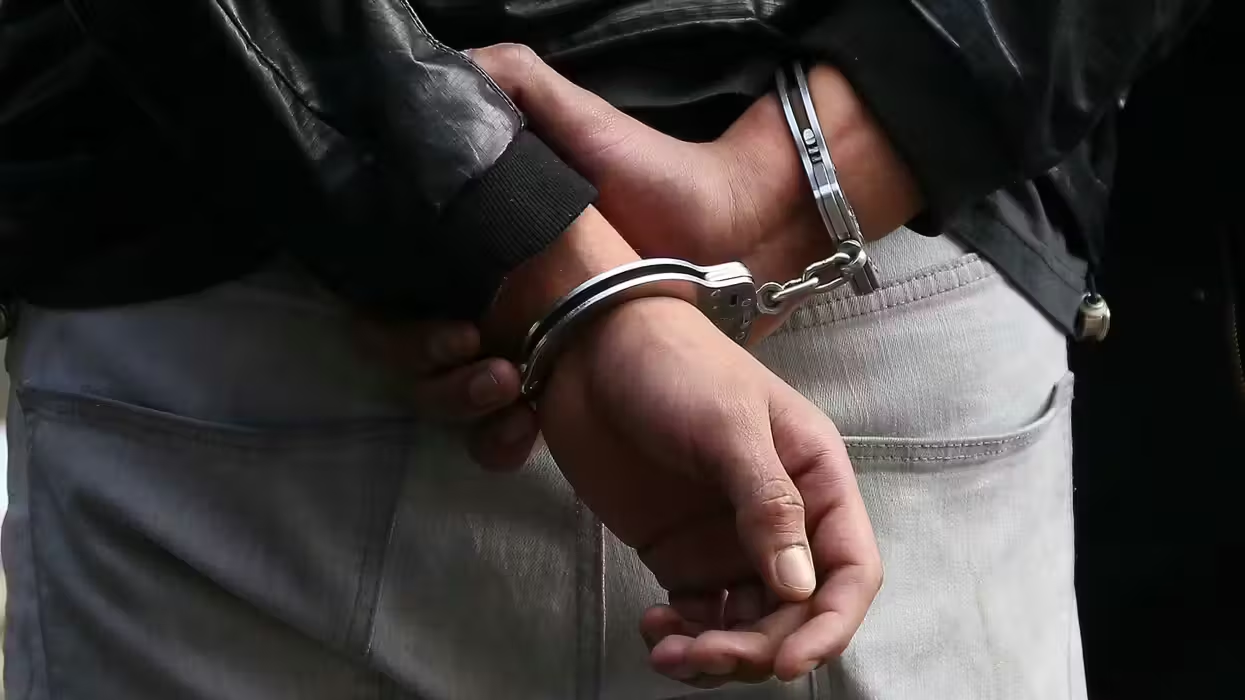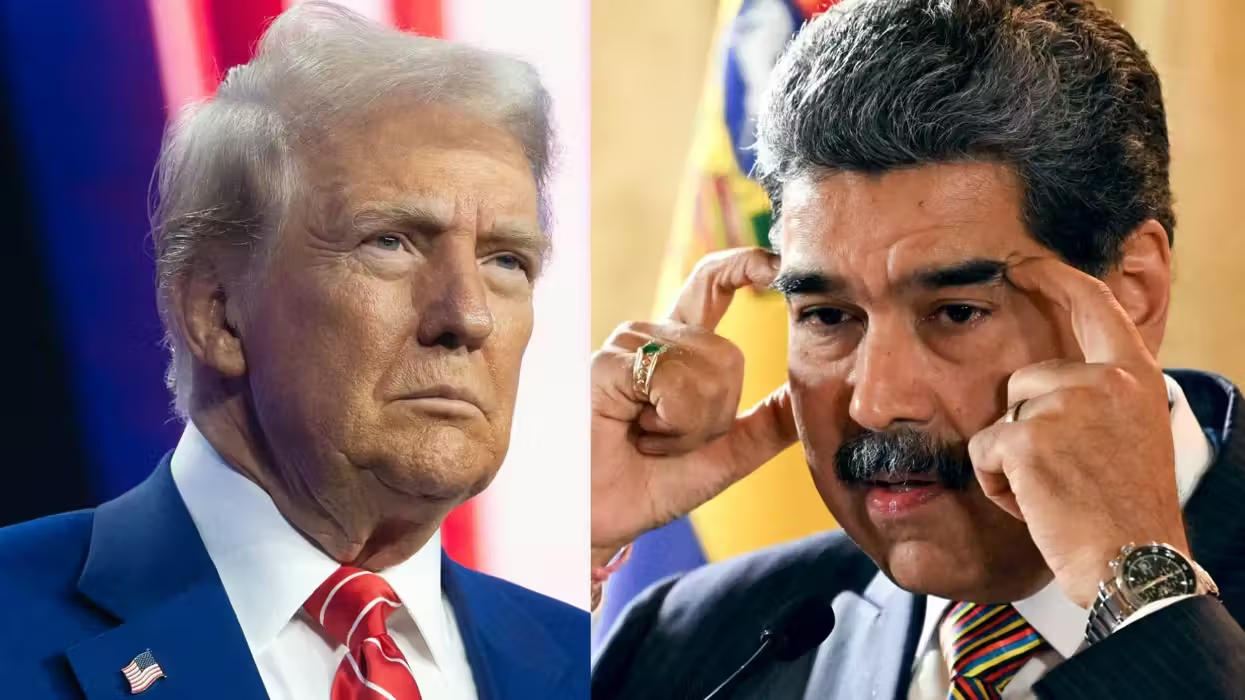SAN DIEGO (TheBlaze/AP) — It's not everyday a traffic ticket makes national news, but when it comes to pioneering new technologies on the road, like Google Glass, everyone wants to know how the rules regarding their use are shaping up.
A San Diego woman who was pulled over for speeding last year also ended up receiving a citation from the officer for wearing Google's futuristic glasses while driving. The citation was as if she were driving and talking on a handheld cellphone.
 Cecilia Abadie wears her Google Glass as she talks with her attorney outside of traffic court Tuesday, Dec. 3, 2013, in San Diego. When Abadie was pulled over on suspicion of speeding in October, the officer saw she was wearing Google Glass and tacked on a citation usually given to drivers who may be distracted by a video or TV screen. She pleaded not guilty to both charges on Tuesday. (AP/Lenny Ignelzi)
Cecilia Abadie wears her Google Glass as she talks with her attorney outside of traffic court Tuesday, Dec. 3, 2013, in San Diego. When Abadie was pulled over on suspicion of speeding in October, the officer saw she was wearing Google Glass and tacked on a citation usually given to drivers who may be distracted by a video or TV screen. She pleaded not guilty to both charges on Tuesday. (AP/Lenny Ignelzi)
On Thursday in California traffic court, the citation against Cecilia Abadie was dismissed. Commissioner John Blair ruled that Abadie was not guilty because the code she was cited for requires proof that the device was in operation. Blair found there was no proof beyond a reasonable doubt that this was the case.
Abadie is believed to be the first motorist cited for wearing Google Glass while driving. She was also found not guilty of speeding. Watch this report from KPIX-TV about the decision:
Abadie, a software developer, is among some 30,000 people called "explorers" who have been selected to try out Google Glass before the technology becomes widely available to the public later this year.
The device on a kind of glass-wear frame features a thumbnail-size transparent display above the right eye.
Abadie was pulled over in October on a San Diego freeway. The California Highway Patrol officer saw she was wearing Google Glass and tacked on a citation usually given to people driving while a video or TV screen is on in the front of their vehicle.
Abadie had pleaded not guilty to both charges in San Diego traffic court. Her attorney William Concidine previously said the device was not activated when she was driving.
The CHP previously declined comment. At the time of Abadie's citation, the agency said anything that takes a driver's attention from the road is dangerous.
Highway Patrol Officer Keith Odle testified in court saying that he wasn't going to cite her for wearing Glass, but then she became "a little argumentative about whether or not it was legal for her to wear them," Reuters reported.
 Cecilia Abadie, left, wears a Google Glass computer-in-eyeglass device while her attorney, William Concidine, speaks to the media, Thursday, Jan. 16, 2014 in San Diego. A San Diego traffic court threw out a citation Thursday against Abadie, a woman believed to be the first motorist in the country ticketed for driving while wearing a Google Glass computer-in-eyeglass device. (AP/U-T San Diego, John Gastaldo)
Cecilia Abadie, left, wears a Google Glass computer-in-eyeglass device while her attorney, William Concidine, speaks to the media, Thursday, Jan. 16, 2014 in San Diego. A San Diego traffic court threw out a citation Thursday against Abadie, a woman believed to be the first motorist in the country ticketed for driving while wearing a Google Glass computer-in-eyeglass device. (AP/U-T San Diego, John Gastaldo)
The lightweight frames are equipped with a hidden camera and tiny display that responds to voice commands. The technology can be used to do things such as check email, learn background about something the wearer is looking at, or to get driving directions.
Legislators in at least three states — Delaware, New Jersey and West Virginia — have introduced bills that would ban driving with Google Glass.
Google's website contains an advisory for users: "Read up and follow the law. Above all, even when you're following the law, don't hurt yourself or others by failing to pay attention to the road."
After the decision, Reuters reported that Abadie told reporters outside the court room "we have to start experimenting with devices like this," noting that Glass doesn't have a "blind spot" and that it's "safer than a cell phone."
--
[related]

 Cecilia Abadie wears her Google Glass as she talks with her attorney outside of traffic court Tuesday, Dec. 3, 2013, in San Diego. When Abadie was pulled over on suspicion of speeding in October, the officer saw she was wearing Google Glass and tacked on a citation usually given to drivers who may be distracted by a video or TV screen. She pleaded not guilty to both charges on Tuesday. (AP/Lenny Ignelzi)
Cecilia Abadie wears her Google Glass as she talks with her attorney outside of traffic court Tuesday, Dec. 3, 2013, in San Diego. When Abadie was pulled over on suspicion of speeding in October, the officer saw she was wearing Google Glass and tacked on a citation usually given to drivers who may be distracted by a video or TV screen. She pleaded not guilty to both charges on Tuesday. (AP/Lenny Ignelzi)






